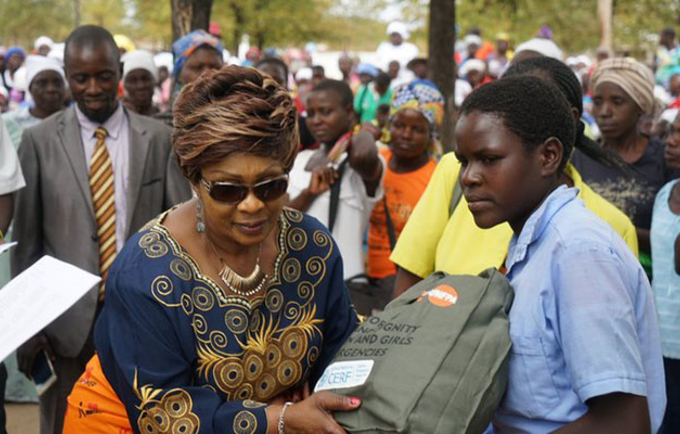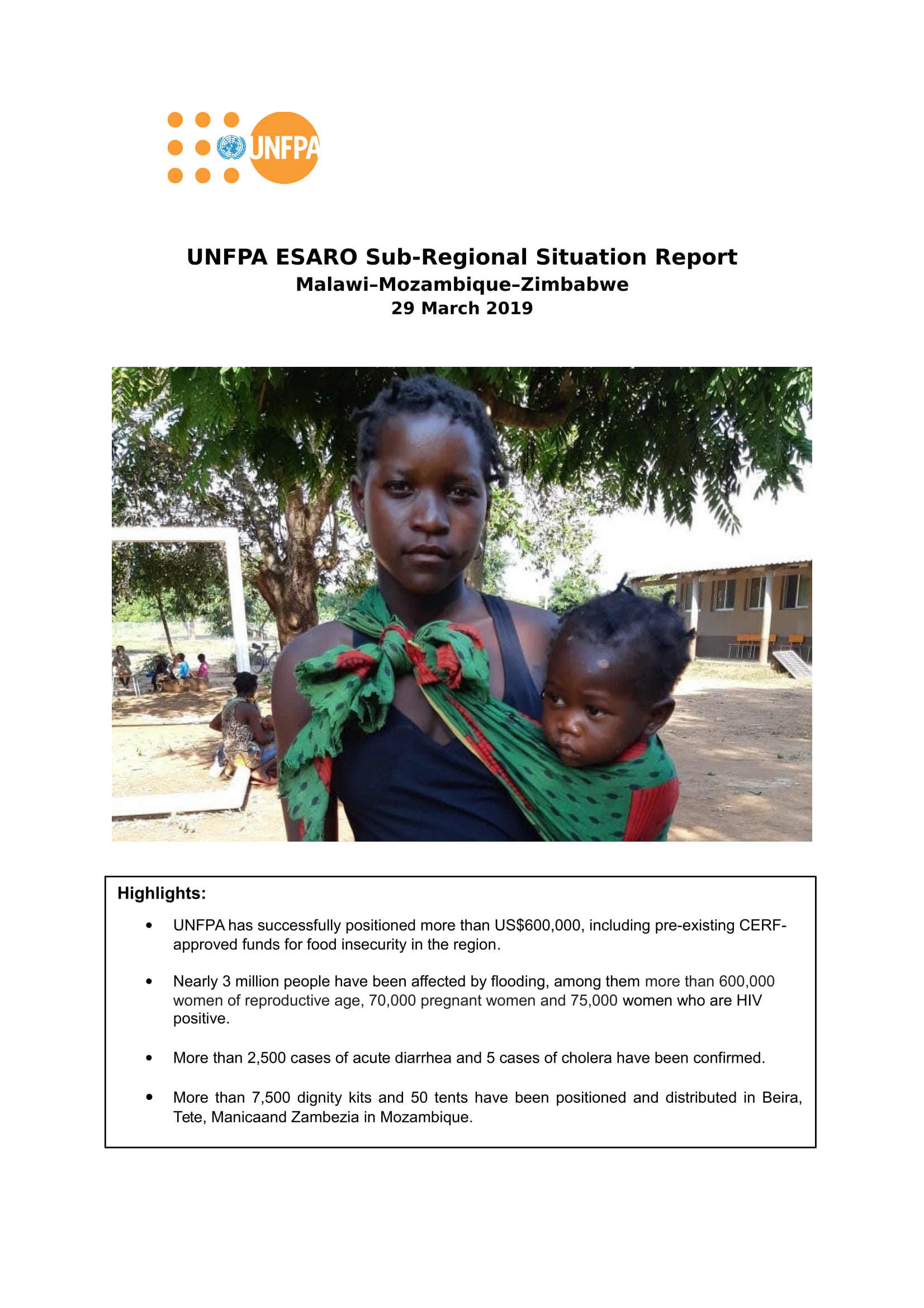The subject of menstrual health is an extremely important one but one which has not been thoroughly conveyed especially to young girls.
Menstrual health is of uttermost importance to every woman and girls should be moulded into the most responsible and ready women when the implications of womanhood approach.
People involved in teaching a girl about menstruation usually shy away from delving in the issue and just scratch the surface. Focus is made on letting them know that they will one-day start bleeding from their reproductive organ and that would mean they are now able to conceive.
They are told not to panic when this happens and to inform a female elder they live with.
Such elders responsible for the growing girl child ought to instil values about menstrual health in these girls while they are still young so that they don’t depart from them when they are grown.
There is more to menstruation than just knowing what it means and what will happen to one’s body. A visit to Muzarabani recently for a dignity kit donation to women in the area by the United Nations Population Fund (UNFPA) helped illuminating how women in rural areas face challenges when they start menstruating. The dignity kits were secured through United Nations Central Emergency Response Fund (UN CERF) funding in response to the national flood disaster earlier this year.
The dignity kits donated comprised of sanitary pads, bar of soap, towel, underwear, comb, petroleum jelly, toothbrush and toothpaste, zambia wrap and a bag in which the items were placed.
Women in rural areas tend to suffer more during menstruation. With water for domestic use being accessed in areas that are far away from one’s location, women cannot afford to bath more than once a day if ever they bath, neglecting good hygiene an ultimate key to menstrual health.
Muzarabani resident Chiedza Mugoni said bathing daily was one of the least worries for women in the area. “Living in the rural areas is very demanding. A rural woman has more chores to do in comparison with women in the city
“These chores demand more time and commitment. By the time we are done working on our domestic chores, we will be exhausted and we won’t have the energy to bath.
“Not only that, but we have to travel a long distance to fetch water — so to use it all on bathing is a waste and will mean we will have to travel multiple times a day to make sure we have water,” she said.
During menstrual periods, the woman’s reproductive system is a bit more prone to infections. This is why personal hygiene is absolutely essential. When a woman is on her period, she loses a lot of blood and iron, resulting in her feeling more tired than usual.
A bath can help with that as it soothes and refreshes. A warm bath is preferable because it relaxes the muscles of the entire body and revives the mind too.
Women living in the rural areas cannot easily do this because they need to fetch both water and firewood to be able to bath.
Clara Musemwa (19) who was one of the beneficiaries said she was happy with what UNFPA had done for them “I feel humbled by what UNFPA has done for us as women in Muzarabani. We didn’t expect this,” she said.
“The occurrence of floods in this area resulted in destruction of a lot of properties and possessions. “Floods had much impact on us as women because we lost certain things that we need for hygiene purposes especially during menstruation.”
Ms Musemwa said the use of pieces of cloth when women were on their periods was a common thing among women in rural areas. “We always make use of cloths instead of pads and this usually results in formation of bruises on our sensitive areas.
“These cloths are rarely washed and are sometimes washed with dirty water minus the soap.” These practices place women in rural areas at high risks of complicating their health.
Miriam Saizi (20) explained how their everyday chores affect them as women. “As women living in rural areas, there are things we have to do on a daily basis that cause more damage to us,” she said.
“We walk for very long distances to fetch water and firewood and these are difficult tasks to perform especially when we are on our periods.
“As you are aware, most women suffer from period pain during their menstrual days and in most homesteads young women are supposed to be the ones carrying out these chores.
“This becomes a great challenge to women in rural areas,” Miriam said. Culture also has an impact on the menstrual health of women in the rural areas. Women who are on their menstruation days are regarded as impure and are castigated. This results in women and girls being restricted in mobility and behaviour.
Young girls who go to school often have to skip school until they are through with their period because they have no access to proper sanitary wear.
Some of the recipients of the United Nations Population Fund (UNFPA) dignity kits which comprised of sanitary pads, bar of soap, towel, underwear, comb, petroleum jelly, toothbrush and toothpaste, zambia wrap and a bag in which the items were placed
Letwin Chikwasha who is a junior councillor at Dambakurima High School said girls have a difficult time at school when they are on their periods.
“If a girl spoils her uniform while at school they are made to feel very uncomfortable,” said Ms Chikwasha. “They become a laughing stock and it is usually boys that are the first to notice and start laughing.”
A tendency of skipping school for at least a week during every month erases the importance of school to girls in rural areas. A disregard of menstrual health can also result in complication of the health of women and can even lead to death or infertility.
There is increased vulnerability to reproductive tract infections that are linked with the incidence of cervical cancer, HIV, infertility, ectopic pregnancies among others.
Minister of Women Affairs, Gender and Community Development, Cde Nyasha Chikwinya said when interventions were made to relieve people of Muzarabani after the occurrence of floods, considerations on women’s needs were not made.
“Food stuffs and blankets were brought here to cater for flood victims but nobody put into consideration women’s needs,” she said.
She added that women were special and deserved to be treated in a special way. “We were created in a special way; we are able to bring another life into this world.
Cde Chikwinya said women had loving hearts despite of all the suffering that they are sometimes exposed to. “There is no right woman that abandons their child because the father’s child is not willing to be responsible.
“Women are willing to take care of their babies no matter what it takes,” she said Serious interventions have to be made to equip women in rural areas with economic and social conditions to manage menstruation sanitation.
Government promised to support women in Muzarabani with chicken projects which will commence soon.
“If you put $10 in the bank, we will get you 100 chickens and the food,” said Cde Chikwinya.
“We will be the ones to buy those same chickens from you when they reach maturity stage at a price of $6 per bird giving you a total of $600.
Men were told to shy away from abusing women following the incident of an unfortunate incident where an 83-year-old woman using a catheter was being sexually abused by a rapist who was later on involved in the Mvurwi accident that burnt 11 people.
The rapist was from Muzarabani. UNFPA programme specialist, Choice Damiso said their organisation was there to emancipate women and children.
“UNFPA aims to ensure that pregnant women deliver well, help children achieve their dreams and make sure women get pregnant by choice.
ZiMwana Worldwide (a non-governmental organisation that supports orphans, vulnerable children and their caregivers) Programme Manager Mr Lovemore Hama said vulnerable women in the rural areas can be rescued if more light was shed especially among the people living in the rural areas.
“The solution is not on continuous donations to vulnerable groups but to go the next level of removing stigma and cultural taboos about menses,” said Mr Hama.
“People should be free to talk about it in public. Information on the dangers of using unhygienic methods should be disseminated in the rural areas.
“Schools, churches can be used as platforms for these discussions.” He added that men should be involved in these discussions as they are the majority breadwinners in families.
Mr Hama also suggested that Government enacts a law compelling manufacturers of sanitary wear to donate a certain portion of their products to marginalised groups especially to school going girls.
By Tatenda Charamba (Features writer, The Herald)


